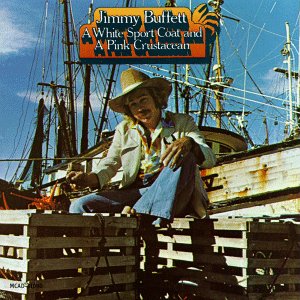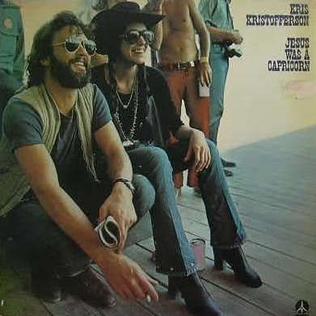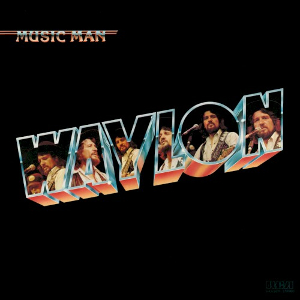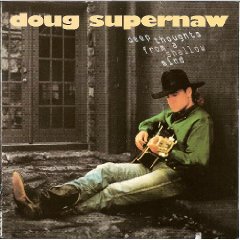
David Allan Coe is an American singer and songwriter. Coe took up music after spending much of his early life in reform schools and prisons, and first became notable for busking in Nashville. He initially played mostly in the blues style, before transitioning to country music, becoming a major part of the 1970s outlaw country scene. His biggest hits include "You Never Even Called Me by My Name", "Longhaired Redneck", "The Ride", "Mona Lisa Lost Her Smile", and "She Used to Love Me a Lot".

Johnny Paycheck was an American country music singer and Grand Ole Opry member notable for recording the David Allan Coe song "Take This Job and Shove It". He achieved his greatest success in the 1970s as a force in country music's "outlaw movement" popularized by artists Hank Williams Jr., Waylon Jennings, Willie Nelson, Billy Joe Shaver, and Merle Haggard. In 1980, Paycheck appeared on the PBS music program Austin City Limits, though in the ensuing decade, his music career slowed due to drug, alcohol, and legal problems. He served a prison sentence in the early 1990s, and his declining health effectively ended his career in early 2000.

Highwayman is the first studio album released by country supergroup The Highwaymen, comprising Kris Kristofferson, Johnny Cash, Waylon Jennings and Willie Nelson. Highwayman, released on Columbia Records in 1985, was the group's first and most successful album.

Reggie Grimes Young Jr. was an American musician who was lead guitarist in the American Sound Studio house band, The Memphis Boys, and was a leading session musician.

A White Sport Coat and a Pink Crustacean is the third studio album by American singer-songwriter Jimmy Buffett. It was released on June 4, 1973, as his first album for Dunhill.

Jesus Was a Capricorn is the fourth album by Kris Kristofferson, released in 1972 on Monument Records. The album cover pictures Kristofferson and his soon-to-be wife Rita Coolidge. "Why Me" reached #1 on the Country singles charts.

Kickin' Out the Footlights...Again is a studio album by American country music artists George Jones and Merle Haggard, released in 2006.

Waylon is a studio album by American country music artist Waylon Jennings, released in 1970 on RCA Victor.

This Time is a studio album by American country music artist Waylon Jennings, released on RCA Victor in 1974, at the peak of the outlaw country movement. It was produced by Jennings and Willie Nelson.

Music Man is a studio album by American country music artist Waylon Jennings, released in 1980 on RCA Victor.

Mark Nelson Chesnutt is an American country music singer and songwriter. Between 1990 and 1999, he had his greatest chart success recording for Universal Music Group Nashville's MCA and Decca branches, with a total of eight albums between those two labels. During this timespan, Chesnutt also charted twenty top-ten hits on the Billboard Hot Country Songs charts, of which eight reached number one: "Brother Jukebox", "I'll Think of Something", "It Sure Is Monday", "Almost Goodbye", "I Just Wanted You to Know", "Gonna Get a Life", "It's a Little Too Late", and a cover of Aerosmith's "I Don't Want to Miss a Thing". His first three albums for MCA along with a 1996 Greatest Hits package issued on Decca are all certified platinum by the Recording Industry Association of America (RIAA); 1994's What a Way to Live, also issued on Decca, is certified gold. After a self-titled album in 2002 on Columbia Records, Chesnutt has continued to record predominantly on independent labels.

The Eagle is a studio album by American country music artist Waylon Jennings, released on Epic Records in 1990. It was the first of his two solo albums on the label, which he joined after a two-year stay at MCA. This was also the last new Waylon Jennings album to be made available on LP; commercially in Europe, and only through the Columbia House record club in the US.

Deep Thoughts from a Shallow Mind is the second studio album by American country music artist Doug Supernaw. It was released on September 13, 1994, by BNA Records and it produced the singles "What'll You Do About Me", "You Never Even Called Me by My Name", and "State Fair". "What'll You Do About Me" was previously a #76 single in 1984 for Steve Earle, and a #74 single in 1992 for The Forester Sisters.

Once Upon a Rhyme is the fourth studio album by American country singer David Allan Coe. It was released in 1975 on Columbia.

Longhaired Redneck is an album released by country musician David Allan Coe. It was released in 1976 on Columbia.

The "Theme from The Dukes of Hazzard" is a song written and recorded by American country music singer Waylon Jennings. It was released in August 1980 as the second single from the album Music Man. Recognizable to fans as the theme to the CBS comedy adventure television series The Dukes of Hazzard, the song became a #1 hit on the Billboard Hot Country Singles chart in 1980.
"Would You Lay with Me (In a Field of Stone)" is a song written by David Allan Coe and recorded by American country music artist Tanya Tucker. It was released in December 1973 as the first single and title track from the album Would You Lay with Me (In a Field of Stone). It topped the U.S. country chart on March 30, 1974, for one week and was Tucker's third number-one song on the chart. On the Billboard Hot 100, the song peaked at number 46. Only her 1975 number-one country hit, "Lizzie and the Rainman", performed better on the pop chart.

"Are You Sure Hank Done It This Way" is a song written and recorded by American country music artist Waylon Jennings. It was released in August 1975 as the first single from the album Dreaming My Dreams. The song was Jennings' third number one on the country chart as a solo artist, and it remained at number one for one week and spent a total of sixteen weeks on the country charts. The song was one of many major hits for Jennings, and became an anthem of the outlaw country movement, as well as the wider genre.

Ralph Eugene Mooney was an American steel guitar player and songwriter, he was inducted into the Steel Guitar Hall of Fame in 1983. He was the original steel guitarist in Merle Haggard's band, The Strangers and Waylon Jennings's band, The Waylors.

Son of the South is an album released by country musician David Allan Coe. It was released in 1986 on Columbia.


















